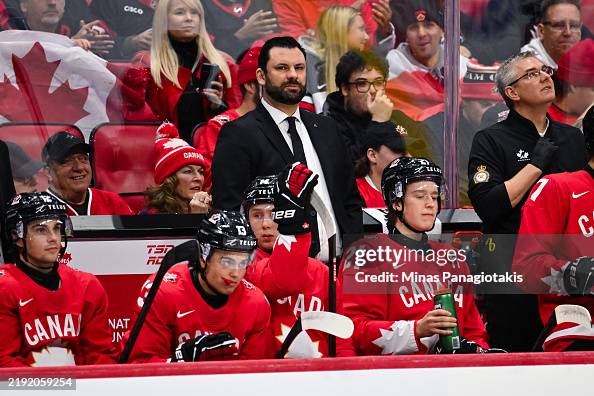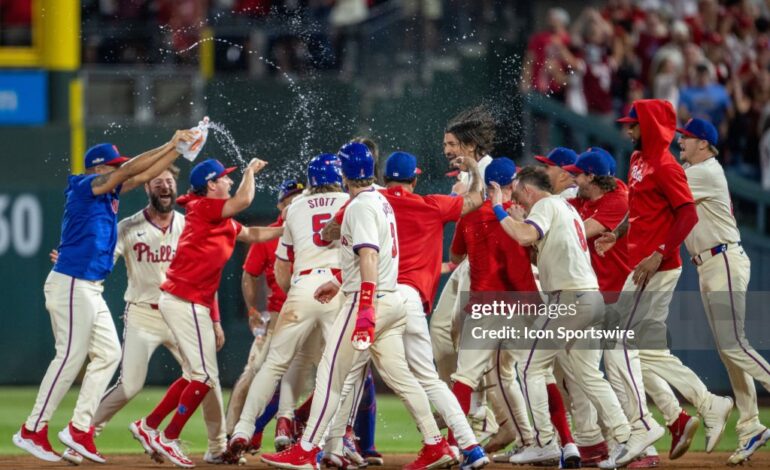As far back as anyone can remember, Canada has been the best country in the world for hockey. In the game’s history, most of the great teams and players came from the Great White North. Canada’s dominance over the sport is a centerpiece of Canadian pride. It’s a staple of Canadian culture, and all teams, both at a local and national level, have almost cult-like followings.
One way Canada has flexed its muscles when it comes to hockey has been the World Juniors Tournament. Throughout the tournament history, Canada has consistently been the most dominant team. They’ve won 20 tournaments the most by any country. They have also medaled 35 times, the second most in the tournament history. The only country that beats them is if you combine the Soviet Union and Russia.
However, after winning their 20th tournament in 2023, things have gone off the rails for Canada. In the past two tournaments, Canada has been unable to make deep runs, falling in the quarter-finals back-to-back years. It’s the first time in the country’s history they’ve failed to make it out of the quarterfinals in back-to-back years. These shortcomings have exposed major problems in Canadian hockey.
Canada was Flawed the Entire Tournament

The flaws in Canadian hockey started even before the first puck was dropped. They were shown when Canada announced the roster that they were going to use. There were a few notable players that were left off the roster. Specifically, Michael Misa, the current goal leader in the OHL, one of the top junior leagues in Canada. They also left off players like Beckett Sennecke, Zayne Parekh, Michael Hage, and several other high-profile players. Making many feel the team built the roster wrong.
Their play on the ice didn’t ease Canadians’ fears about the roster. The team was undisciplined and relied more on the players’ individual skills to make up for things they lacked. Specifically, to try and mask the lack of chemistry the team had. However, that strategy doesn’t work when every other team in the tournament puts a major emphasis on team chemistry. A team playing as individuals will never be able to beat a team that has good chemistry.
You think that if the chemistry was such an issue during the tournament, the coaching staff would try to build it as much as possible. Do drills and more on-ice practicing to try and build it. However, Canada did the exact opposite. Canada canceled practice several times throughout the tournament. Including the morning skate before the do-or-die game against Czechia. How do you expect to win games, and get your team better, if you don’t practice?
Other Countries Have Caught Up

Not only was Canada uncharacteristically worse off, but other countries have caught up to them. Specifically the United States. The US has taken Canada’s spot as the team to fear in recent memory. They’re the defending back-to-back champions of World Juniors. This has been a trend we’ve been seeing over the past decade. In the past ten tournaments, the US has medaled eight times. They’ve also won two additional tournaments in 2017 and 2021.
This rise in US dominance is thanks in large part to the investment the country has made in its hockey program. The US has spent a lot of time and money into developing this current group of players and it has paid off. It’s a group of very skilled individuals, but the major difference is these guys have been playing with each other forever. They have great chemistry and seems like a locker room everyone wants to be in. Go look at all the videos coming out after they won.
Never gets old
— USA Hockey (@usahockey) January 6, 2025#WorldJuniors pic.twitter.com/HtldQXAxbE
With this young core of players on the NHL doorstep, the next generation could be dominated by Americans. Thus increasing the popularity of the sport in the US and making more kids want to start playing. Giving these US hockey programs an influx of talent they’ve never seen. Instead of playing football, baseball, or basketball, they’ll become hockey players. Sending more Americans to the NHL, and giving these juniors team more success. Although Canada will always be a hotbed for hockey, the days of them being the sole dominant country are over.
Thanks for reading! Credit for my feature image to Minas Panagiotakis. You can find more NHL/Hockey content at Belly Up Sports and follow me on Twitter/X.






